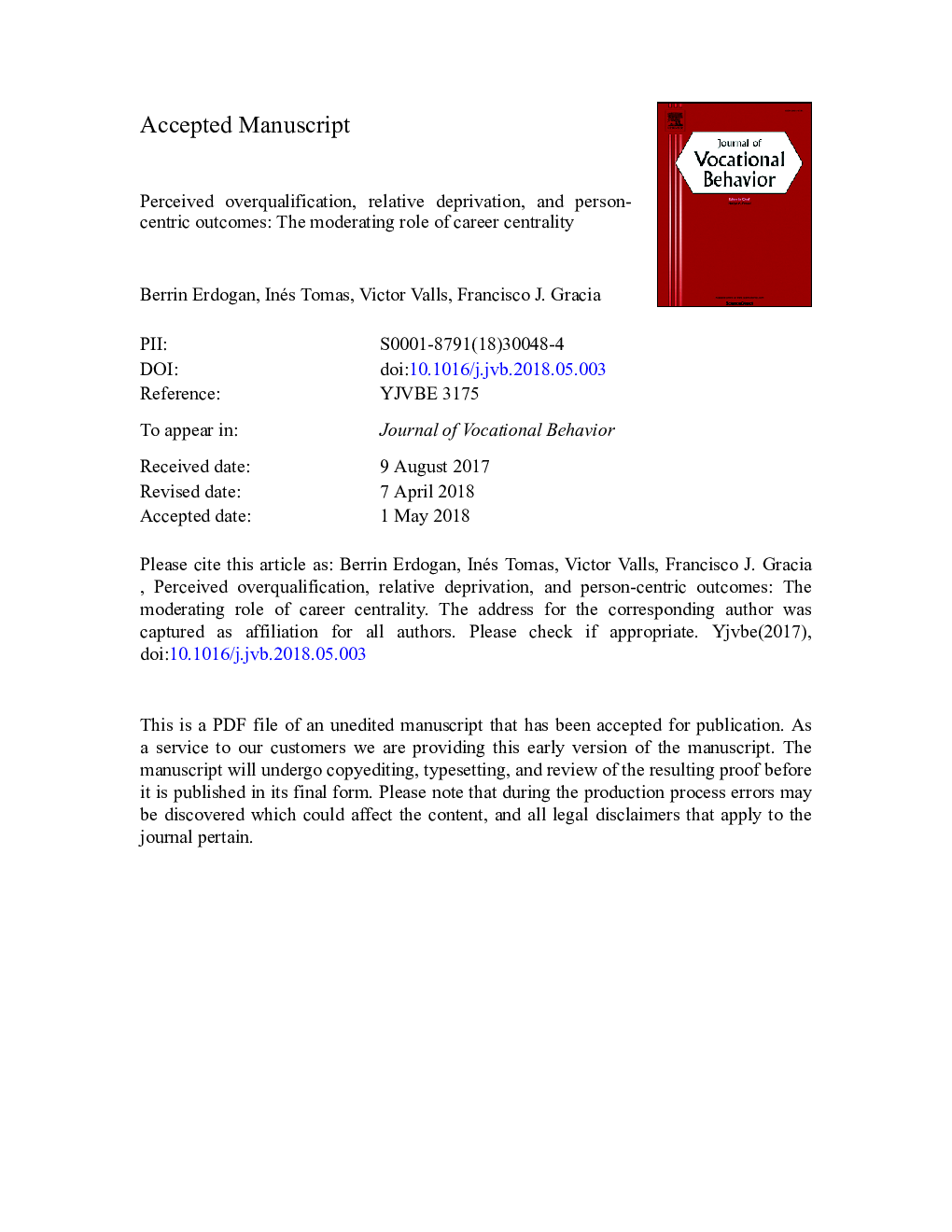| Article ID | Journal | Published Year | Pages | File Type |
|---|---|---|---|---|
| 7247228 | Journal of Vocational Behavior | 2018 | 48 Pages |
Abstract
In this study, we develop and test a model examining why and when perceived overqualification relates to career satisfaction and subjective well-being. In a sample of 143 new university graduates in Spain with data collected across two time periods, we showed that perceived overqualification interacted with career centrality to predict relative deprivation, which in turn was related to lower career satisfaction, positive affect, and life satisfaction, as well as higher negative affect. Further, perceived overqualification had negative main effects on career satisfaction, negative affect, and life satisfaction. The results suggest the importance of perceived overqualification for well-being outcomes, as well as the importance of adopting a contextual approach to investigating the personal effects of perceived overqualification.
Related Topics
Social Sciences and Humanities
Business, Management and Accounting
Marketing
Authors
Berrin Erdogan, Inés Tomás, VÃctor Valls, Francisco J. Gracia,
